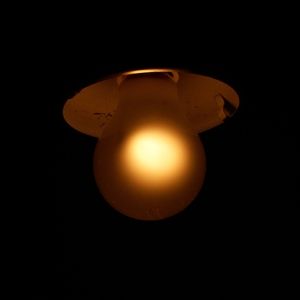-
202031
hyperart: saluda grade
A Thomasson, coined by Japanese artist Genpei Akasegawa in the 80’s, is a term for a (typically urban) structure that no longer serves its purpose, but is still actively maintained. Staircases to nowhere, second floor doors that open on empty space, gates rusted shut but freshly painted – Akasegawa become obsessed with the concept of these existentially ambiguous objects, eventually writing an entire book on the subject.
“Abandoned by the world, no longer of use, but still carefully repaired and preserved, these were no ordinary objects. The reasons for their maintenance remain a mystery. At this point, they could only be described as "art". No—not so much "art" as something that exceeds art...
Hyperart.”
Genpei Akasegawa, Hyperart: Thomasson
It’s the kind of idea that nests in your head, and once it’s there you start to see Thomassons everywhere. (Or at least you think you do. Truly useless artifacts are surprisingly difficult to identify, and inspire intense debate.) I recently found an interesting one on my second read of Brian Hayes’s Infrastructure: A Guide to the Industrial Landscape.
spartanburg to asheville
The Saluda Grade is a 3-mile long stretch of railroad track between Spartanburg, South Carolina, and Asheville, North Carolina, which for the duration of its active operation was easily the steepest main line track anywhere in the United States, at almost a 5% incline. For comparison, most passenger rail aims for a maximum grade below 1.5%.
Though the rail was closed to traffic in December 2001, it wasn’t officially abandoned to overgrowth until 2014, which means that for almost 13 years the track was commercially worthless but still kept up – in hopes of future use or just for appearances, I’m not sure. But at a standard density of 3,250 wooden crossties per mile (not even thinking about the volume of steel), I wouldn’t be surprised if the Saluda Grade was, during those 13 years, the largest Thomasson in the world.
and thus the heart will break
They mourn, but smile at length; and, smiling, mourn:
The tree will wither long before it fall:
The hull drives on, though mast and sail be torn;
The roof-tree sinks, but moulders on the hall
In massy hoariness; the ruined wall
Stands when its wind-worn battlements are gone;
The bars survive the captive they enthral;
The day drags through though storms keep out the sun;
And thus the heart will break, yet brokenly live on:Lord Byron, Childe Harold’s Pilgrimage
-
2020219
light of the long moment
Compare the images from Daniel Eatock’s artist prompt, “Take a photograph of a light bulb at the precise moment you turn off the bulb”: Switched Off Photographs.
...To images of the star Betelgeuse approaching the end of its life, shared by Geoff Manaugh on BLDGBLOG: Dimming to Explode.


On a cosmic scale, we measure moments in lifetimes.
-
202028
formulating work
Though I don’t plan on this being a “the dictionary defines work as” kind of post, we have to start somewhere.
From Webster’s 1913. (Why?)
work := That which is produced as the result of labor.I want to give a sense of four different types of work. This is not an exhaustive list in any aspect, but they seem to me vaguely defined points along a certain axis. Or at least included in many of the same sets.
|-----------------------------| gig job career vocationgigs
I realized today that I need a hobby, because my work day just started, like, now. Right now. And here’s the thing, it’s not even that big a part of my day. So even if it doesn’t go well, it’s like, ah, you know, still a pretty good fucking day. Like it wasn’t a “bad day”, just that one part at work – for an hour – didn’t go to my liking, and then I had a great day otherwise.
Tom Segura, Completely Normal
A gig is on one side of this axis.
It’s a teenager showing up a few days a week to babysit their neighbor’s kid, or a band booking sporadic shows at local venues. It’s not even that big a part of your day. This is different from volunteer labor, since a gig should probably involve some form of exchange / payment, but there’s not usually an expectation that the work will be frequent or stable.
So, starting with work, we could expand our definition and say:
gig = work + (reward, purpose)A gig doesn’t need to have the negative connotations that it often does. As long as we can meet the basic requirements of living, then gigs allow us a certain kind of freedom (even if it’s often an uncertain and anxious kind of freedom), or they allow us to pack up and leave if things don’t work out the way we’d like.
For those souls that need assurance, they might instead seek...
jobs
See how many a pretty thing
I always from the cube can bring:
Chair and sofa, bench and table,
Desk to write at when I’m able,
All the household furniture,
Even baby’s bed I’m sure;
Not a few such things I see;
Stove and sideboard here can be.
Many things, both old and new,
My dear cube brings into view;
So my cube much pleases me,
Because through it so much I see.
It is a little world.Ellen Lupton, The ABC’s of ⚠️🆘🔵: Bauhaus and Design Theory
This quote has very little to do with jobs per se, and it’s not even really about work at all, but I like to imagine that “cube” here refers to an office cubicle – and that makes the meaning of the poem somehow a lot sadder than the original about building blocks and creativity.
I can think of no better object to symbolize jobs than a cubicle. It is a little world.
(there’s more to say here, though I’m not sure what yet)
job = gig + (commitment, formality)The inclusion of “commitment” here brings up an interesting point about gigs. You might say that even if you’re not committed to any gigs in particular, you’re committed to a certain kind of lifestyle or way of working that they enable. Hence “the gig economy”.
In the same way, the jobs you hold may in the long run become...
careers
It’s difficult to commit oneself to something, a career for instance, if all you see is the most likely unexceptional scenario ten years down the road. Why bother? Why not wait until you’re so excited about something, so passionate, that not devoting your life to it would hardly even occur to you?
Well, the fact is that the world turns, and if your internal timepiece doesn’t get wise to that idea, you’ll never be able to catch up to the people whose has.
James Somers, How to Be a Loser
I use this quote at the risk of blurring the lines between a lot of these words even further, as Somers uses the word “commit” above where I might instead suggest “dedicate”. But the intention is the same.
career = job + (dedication, experience)vocations
Weber's German word for a vocation, Beruf, contains two resonances: the gradual accumulation of knowledge and skills and the ever-stronger conviction that one was meant to do this one particular thing in one's life.
An English locution roughly conveys what he meant: your life 'adds up’.
Richard Sennett, The Craftsman
A vocation is the difference between I do this and I am this. It’s not an inevitable state of being – either by necessity or inertia, I may spend my whole life working on something I don’t believe defines me as a person. I may value my free time, or my relationships, or my freedom in ways that preclude me from feeling that I was meant to do the thing I spent 8 hours of most weekdays doing.
The sense of the word meaning here is different from that of purpose in the definition of
gig. A gig has a purpose in that it produces something of tangible, economic value. The “purpose” of a vocation is, in addition, existential – my purpose on Earth.And so we say:
vocation = career + (identity, meaning)one poem for a life
To build one's house is very much like making one’s will. When the time does arrive for building this house, it is not the mason’s nor the craftsman’s moment, but that moment in which every man makes one poem, at any rate, in his life. And so, in our towns and their outskirts, we have had during the last forty years not so much houses as poems, poems of an Indian summer, for a house is the crowning of a career.
Le Corbusier, Towards a New Architecture
-
2020119
liberating space
If sculpture can be defined as the discipline concerned primarily with the liberation of form, then architecture must be thought of as the discipline concerned primarily with the liberation of space.
In a process somewhat the reverse of Michelangelo's idea of cutting away the superfluous marble to liberate the mass of the statue which, in his mind, was contained there, the collective mind of the citizens of Todi must have conceived the space volumes of the two squares as abstract entities, and then brought them into being by the construction of individual buildings over many years, which gradually defined their edges.
Edmund N. Bacon, Design of Cities
Architecture is seen to be the opposite of sculpture, or maybe its inverse, and knowing one illuminates the other in the same way that Gaudi's inverted models reveal construction as simply the inverse of gravity.
Space is the most fundamental architectural concept, and architecture is usually regarded primarily as the construction of humanly meaningful spaces and the art of articulating expressive space.
Robert McCarter & Juhani Pallasmaa, Understanding Architecture

By creating form we shape space. By making space we define form.
the digital analogy
In product design, or software design, consider the work not as the process of adding functionality, but instead as a process of removing friction. Like Michaelangelo, our job is to carve away everything in between our users and their goals, minimizing the distance between intent and execution wherever possible. This is good news, as it's often much easier to recognize poor fit than it is to articulate good fit, and so UX becomes a practice of eliminating bad experiences as much as it is about creating delightful ones.
-
2020118
just so
I'd like to propose a name for the following color: Tschichold Black (which straightforwardly implies the existence of Tschichold White, Tschichold Red, etc).
rgba(0, 0, 0, .01) hsla(0, 0%, 0%, .01) #00000001
Or perhaps it's best referred to as an abstract unit, in which case it may earn a proper noun: the Tschichold. It represents a difference on the threshold of visibility. Barely noticeably darker.
"Why is it called a Tschichold?"
Because this is the expression you want to make when you use it:
